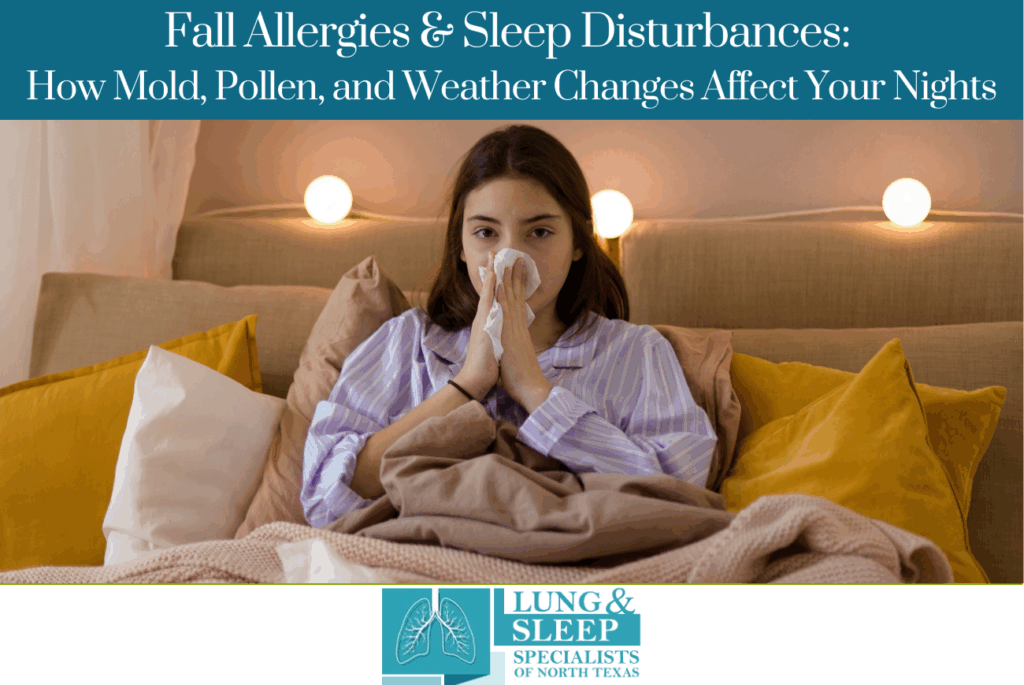
Introduction
As the Texas summer heat eases into cooler nights, many people look forward to crisp air and colorful leaves. Yet for allergy sufferers, fall brings a new set of challenges—ragweed pollen, mold spores from fallen leaves, and an uptick in indoor allergens as windows close. These changes don’t just cause sniffles and sneezes; they can seriously disrupt your sleep.
How Fall Allergies Interfere with Sleep
- Nasal Congestion: Swollen nasal passages force mouth breathing, which dries the throat and causes awakenings.
- Nighttime Coughing/Wheezing: Allergic asthma and postnasal drip trigger coughing fits that interrupt deep sleep stages.
- Sleep Apnea Worsening: Allergic inflammation can narrow airways, aggravating or revealing previously undiagnosed obstructive sleep apnea (OSA).
- Fragmented Sleep Architecture: Frequent micro-awakenings reduce time in REM and slow-wave sleep, leading to daytime fatigue and brain fog.
Understanding the Triggers
- Ragweed peaks in late August through October and can travel miles in the air.
- Mold Spores flourish in damp leaves and compost piles.
- Indoor Allergens—dust mites, pet dander, and indoor molds—rise as we seal windows and use heaters.
Functional and Integrative Assessment
At Lung & Sleep Specialists, we take a root-cause approach:
- Detailed environmental and lifestyle history
- Allergy testing (skin or blood)
- Pulmonary function tests if asthma is suspected
- Sleep studies to identify apnea or other sleep-disordered breathing
Proactive Home Strategies
- HEPA Filtration: Use high-efficiency filters and replace them regularly.
- Dehumidify: Keep humidity between 30–50% to discourage mold.
- Evening Showers: Rinse pollen off skin and hair before bed.
- Allergen-Proof Bedding: Encase pillows and mattresses.
- Seasonal Cleaning: Wash bedding weekly in hot water and vacuum with HEPA filters.
Medical & Integrative Treatment
Depending on your profile, we may recommend:
- Allergy immunotherapy (shots or drops)
- Prescription or over-the-counter antihistamines or nasal steroids
- Breathing retraining to improve nasal airflow
- Nutritional and herbal supports (e.g., quercetin, vitamin C) after professional review
When to See a Specialist
Persistent congestion, night coughs, or worsening snoring are signs you should schedule an evaluation. Early intervention prevents complications like chronic sinus infections or OSA.
Call Lung & Sleep Specialists of North Texas at (817) 594-9993 or request an appointment online to keep fall allergies from stealing your sleep.
